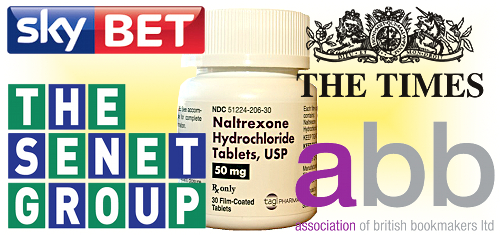 Sky Betting & Gaming has become the first online-only gambling operator to join the UK betting industry’s self-regulatory body.
Sky Betting & Gaming has become the first online-only gambling operator to join the UK betting industry’s self-regulatory body.
On Thursday, Sky Betting & Gaming was officially welcomed as a member of the Senet Group, the betting industry watchdog whose charter members include prominent bookies Coral, Ladbrokes, Paddy Power and William Hill, along with more recent addition Scotbet.
Sky Betting is the first Senet member that conducts business purely via web and mobile channels, and Senet chair Wanda Goldwag said it was important that the group “have a leading operator in this space to inform the development of our code of conduct.” Sky Betting CEO Richard Flint said he was looking forward to “helping shape the group’s work on online gambling issues.”
THE TIMES TAKES AIM AT THE CINNABON OF GAMBLING
The Senet Group was launched in response to a relentless campaign by anti-gambling media types, including the Daily Mail and the Mirror, to highlight the worst outlying excesses of the betting industry and paint them as the norm.
This week saw the venerable Times join the party via a report that UK doctors had begun prescribing Naltrexone to gamblers who had difficulty curbing their use of the fixed-odds betting terminals (FOBTs) in betting shops. Australian politicians had previously suggested using the medication – which helps wean alcohol and drug addicts off their preferred intoxicant – to battle the country’s legions of video poker (pokies) addicts.
The Times claimed this program cost the already strapped National Health Service £10k per patient, while linking this figure with the roughly 1,000 problem gamblers that UK doctors had referred to the National Problem Gambling Clinic last year, leading readers to conclude that taxpayers were shelling out £10m per year for this program.
Trouble is, the drug actually costs only £68 per patient for a three-month course, and the clinic has so far prescribed the drug to a mere five clients. The Times did eventually cop to these facts, albeit on page 28.
Trading on the oft-repeated meme that FOBTs are the “crack cocaine of gambling,” the Times editorialized that the use of Naltrexone was warranted because FOBTs were “drug delivery machines and should be regulated as such.”
The editorial also called on David Cameron’s government to take more drastic action to reduce the negative impact FOBTs had on society, while suggesting that the government was too reliant on FOBT tax revenue to take any serious steps to turn off the money taps.
FOBT? GTFO…
Not content to let the Times off the hook, the Association of British Bookmakers (ABB) wrote its own op-ed, which savaged the Times for presenting “little more than a litany of non-evidenced campaign assertions that lacked any proportionality or reference to evidential sources such as gambling prevalence and health surveys.”
To back up its rhetoric, the ABB cited UK gambling prevalence studies that showed problem gambling levels remained below 1% — and actually drooped from 0.6% to 0.5% — between 1999 and 2012, while the number of betting shops has fallen by over 300 in just the past three years. But as the ABB noted, “don’t let the truth get in the way of a good story.”
The ABB is by no means a neutral party in this debate, but we happen to agree with their assertion that anti-betting campaigners would prefer the world believe that the vast majority of bettors “can’t be trusted to pursue your leisure activity with any form of self-restraint or responsibility.”
Sadly, we’re less convinced by the ABB’s claim that “the images of betting shops painted by the prohibitionists are so far removed from reality that they will never be believed.” One need look no further than the current frontrunner for the GOP presidential nomination to recognize that reality doesn’t always win the day.
